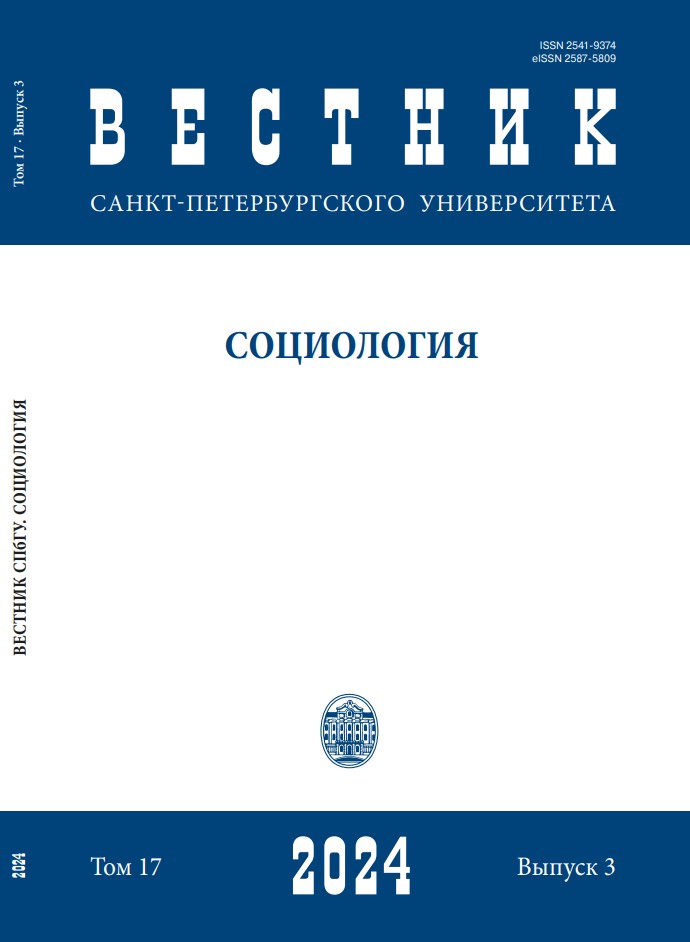Structural features and social problems of single-parent families in Russia and the Republic of Kazakhstan: Сomparative analysis
DOI:
https://doi.org/10.21638/spbu12.2024.304Abstract
The article examines the structural features and socio-economic problems of single-parent families in Russia and the Republic of Kazakhstan. The authors consider that single-parent families mean families with one parent and children which were formed as a result of disintegration due to divorce, the death of one of the spouses, as well as a result of the birth of children out of wedlock. Using the materials of the All-Russian (2010, 2020) and national population censuses in the Republic of Kazakhstan (2009, 2021), the authors analyzed the prevalence of single-parent families in the countries under consideration, numerical dynamics, and their characteristics such as structure, composition, size, number of children. It has been concluded that in both Russia and Kazakhstan the share of maternal and paternal single-parent families had increased between censuses, the share of single-parent families in Kazakhstan in general is lower than in Russia. In Kazakhstan single-parent families have more children than in Russia, however, opposite trends are observed in these two countries: in Russia there is a noticeable increase in the number of children in single-parent families, in Kazakhstan there is a decrease. On the base of data of the Russian sociological study “Demographic well-being of the regions of Russia” of the Institute of Demographic Problems of the Federal Research
Sociological Center of the Russian Academy of Sciences held in 2020–2021, including indepth interviews with single parents, as well as a sociological study conducted in 2021 in the Republic of Kazakhstan by the Republican Scientific and Practical Center for Mental Health, the authors have carried out an analysis of social and economic problems of single-parent families. It was revealed that the functioning of single-parent families is accompanied by a number of risks. The authors believe that the demographic well-being and the quality of human capital of Russia and Kazakhstan, as well as any other states, depends on the quality of the family and marital structure of the population, in this regard, a more comprehensive approach to the problems of single-parent families is needed.
Keywords:
single-parent families, family structure, family size, single mothers, paternal families, children in single-parent families, deprived groups, social problems
Downloads
References
Downloads
Published
How to Cite
Issue
Section
License
Articles of "Vestnik of Saint Petersburg University. Sociology" are open access distributed under the terms of the License Agreement with Saint Petersburg State University, which permits to the authors unrestricted distribution and self-archiving free of charge.




